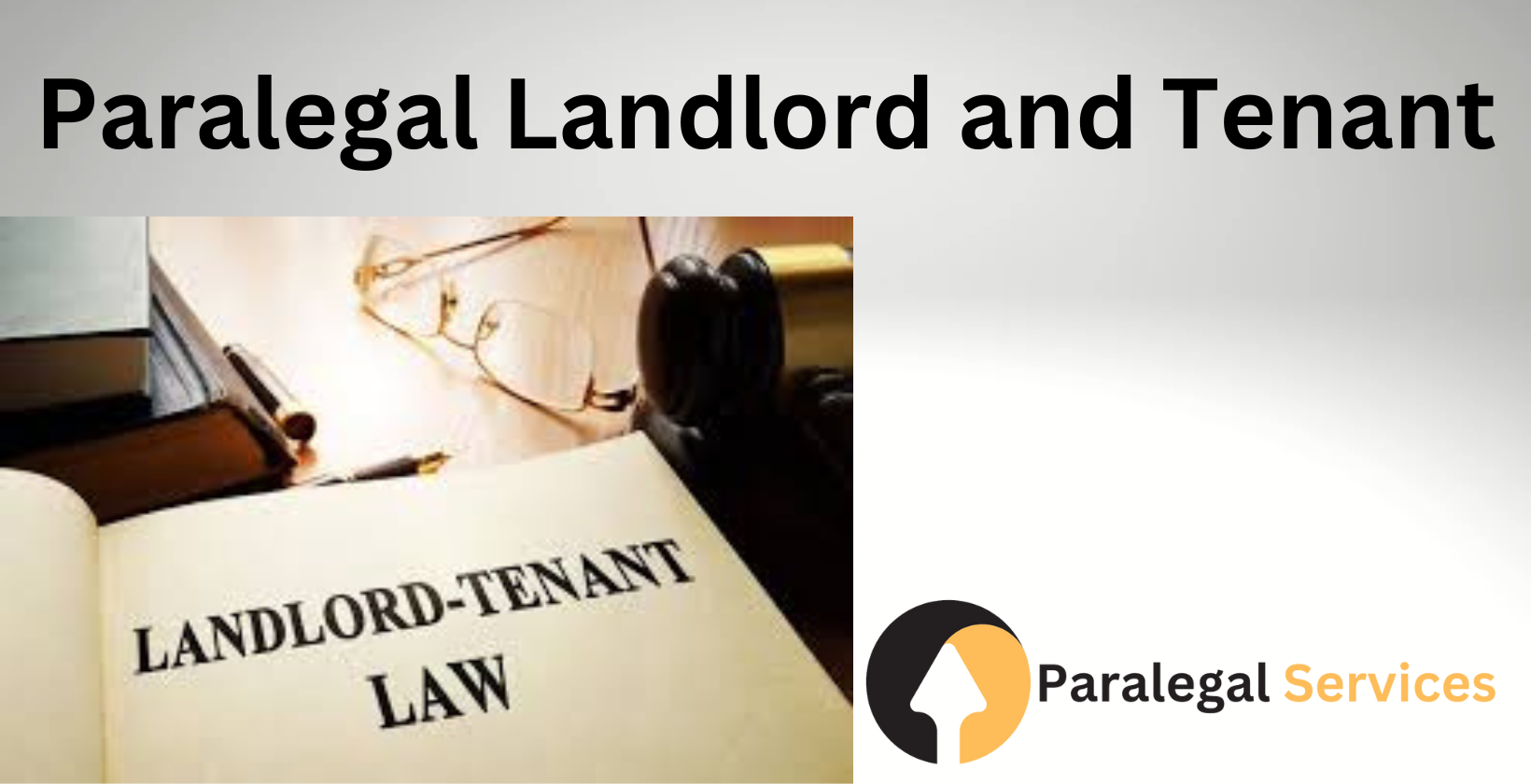Paralegal services for landlords and tenants focus on legal and administrative support in rental disputes, lease agreements, and tenant rights. A paralegal bridges the gap between landlords and tenants by preparing legally binding documents, supporting litigation processes, and ensuring compliance with local landlord-tenant laws. The role includes drafting eviction notices, handling small claims, and advocating for tenant protections. For example, in cases where security deposit disputes arise, paralegals can help resolve conflicts efficiently while minimizing legal fees. According to a study from the Legal Studies Department of Stanford University (2022), paralegals reduce costs for landlords and tenants by up to 45% in disputes requiring legal assistance.
What does a paralegal do in landlord and tenant disputes?
A paralegal provides essential support in landlord and tenant disputes by preparing legal documents, conducting research, and ensuring compliance with state and local regulations. The paralegal identifies relevant legal statutes, drafts notices, and prepares filings for small claims or other legal proceedings. For example, in a rent dispute, a paralegal may draft a demand letter to address unpaid rent or create a response to a tenant’s complaint. According to a 2021 study from the University of California’s Legal Studies Department, paralegals can expedite dispute resolution by up to 30% through accurate documentation and administrative efficiency.
How can a paralegal assist with eviction notices?
A paralegal can assist with eviction notices by drafting accurate, legally compliant documents that meet state-specific requirements. The process includes creating a notice to vacate, ensuring it reflects the legal grounds for eviction, such as nonpayment of rent or lease violations. Paralegals may review lease terms to verify whether the landlord’s claims align with the lease’s conditions. For instance, in a case of lease violation, a paralegal might draft a “Notice to Cure or Quit” that informs tenants of their obligations and timelines. A study published by the Legal Assistance Foundation (2020) highlights that paralegals improve compliance rates for landlords by 25% in eviction cases when notices are correctly prepared.
What role does a paralegal play in drafting rental agreements?
A paralegal plays a critical role in drafting rental agreements by creating clear, enforceable contracts that outline the rights and responsibilities of both landlords and tenants. Paralegals ensure the agreements include essential clauses, such as payment terms, security deposits, maintenance obligations, and termination procedures. For example, a paralegal might include a “quiet enjoyment” clause to protect tenant rights while specifying rules for property use. According to Harvard Law’s Tenant-Landlord Study (2023), well-drafted rental agreements prepared by paralegals reduce legal disputes by 40%, ensuring smoother landlord-tenant relationships.
How can paralegals support landlords with tenant screening?
Paralegals can support landlords with tenant screening by conducting background checks, reviewing credit reports, and verifying rental history. They ensure the process complies with local and federal laws, such as the Fair Housing Act, to avoid discrimination claims. For example, a paralegal may assist in preparing standardized rental applications and obtaining consent for background checks. According to a report by the National Apartment Association (2022), paralegal-supported tenant screening reduces the risk of selecting problematic tenants by 35%, ensuring landlords make informed decisions.
What is the paralegal’s role in tenant rights advocacy?
A paralegal’s role in tenant rights advocacy involves educating tenants about their legal protections, assisting with complaints, and preparing documents for court or administrative hearings. Paralegals help tenants address issues such as illegal evictions, unsafe living conditions, or withheld security deposits. For instance, a paralegal may draft a demand letter to compel landlords to make necessary repairs. Research from the Tenant Advocacy Network (2021) found that paralegal intervention increases tenant success in legal disputes by 50% by ensuring proper representation and documentation.
How do paralegals help with small claims court cases for landlords and tenants?
Paralegals help with small claims court cases for landlords and tenants by preparing court documents, gathering evidence, and organizing case files. They provide procedural guidance and ensure that filings comply with jurisdictional rules. For example, a paralegal may draft a complaint for a landlord seeking unpaid rent or help a tenant respond to claims. According to a study by the American Bar Association (2023), paralegal assistance reduces procedural errors in small claims cases by 45%, increasing the likelihood of favorable outcomes for their clients.
What types of landlord and tenant forms can a paralegal prepare?
Paralegals can prepare various forms essential for landlord and tenant matters. These include:
- Eviction Notices: Eviction paralegals draft notices such as “Notice to Quit” or “Notice to Pay or Vacate” to initiate eviction proceedings while ensuring legal compliance.
2 . Lease Agreements: They prepare detailed rental contracts outlining terms, responsibilities, and conditions for landlords and tenants.
3 . Amendments to Leases: Paralegals handle revisions to existing leases, such as rent adjustments or new clauses.
- Complaint Forms: They draft legal complaints for landlords seeking unpaid rent or tenants addressing landlord negligence.
5 .Security Deposit Demand Letters: Paralegals create letters demanding the return of improperly withheld security deposits.
6 . Repair and Maintenance Requests: They draft formal requests for necessary property repairs to comply with tenant rights laws.
According to a survey by the Real Estate Legal Association (2022), paralegal-prepared forms improve case accuracy by 40%, reducing the likelihood of disputes escalating to litigation.
How can paralegals assist with resolving lease disputes?
Paralegals assist with resolving lease disputes by mediating between landlords and tenants, drafting settlement agreements, and offering procedural guidance. They identify areas of conflict, such as maintenance responsibilities or late payments, and propose legal solutions. For example, a paralegal may draft a mediation agreement where a landlord agrees to complete repairs while the tenant commits to a revised payment schedule. Studies from the Mediation Center of America (2021) indicate that paralegal involvement increases successful lease dispute resolutions by 30% through effective documentation and communication.
How can a paralegal help with security deposit disputes?
A paralegal helps with security deposit disputes by analyzing lease terms, preparing demand letters, and compiling evidence to support claims. They ensure compliance with state laws, such as timelines for returning deposits or valid deductions for damages. For instance, in a dispute over cleaning charges, a paralegal may gather photographs and receipts to contest excessive deductions. According to a report by the Tenant Resource Center (2020), paralegal intervention resolves 45% of security deposit disputes before they escalate to court.
Meet the Author
Annette E. – Distinguished Paralegal at BestParalegalServices
Annette E. is a distinguished paralegal at BestParalegalServices with comprehensive expertise in supporting solo practitioners and small law firms across diverse legal areas, including contract law, family law, and real estate. She specializes in preparing essential legal documents such as contracts, legal briefs, discovery documents, and client correspondence, ensuring each one meets stringent legal requirements and aligns with both state and federal regulations.
Annette brings over five years of paralegal experience, including extensive litigation support as a law clerk. This background gives her a unique insight into the intricacies of legal proceedings, allowing her to provide exceptional service and attention to detail.
With a Bachelor’s degree in Legal Studies and a certification in paralegal studies, Annette is a trusted professional for attorneys seeking reliable and thorough legal support. Her experience and dedication make her a valuable asset for clients and attorneys alike.



